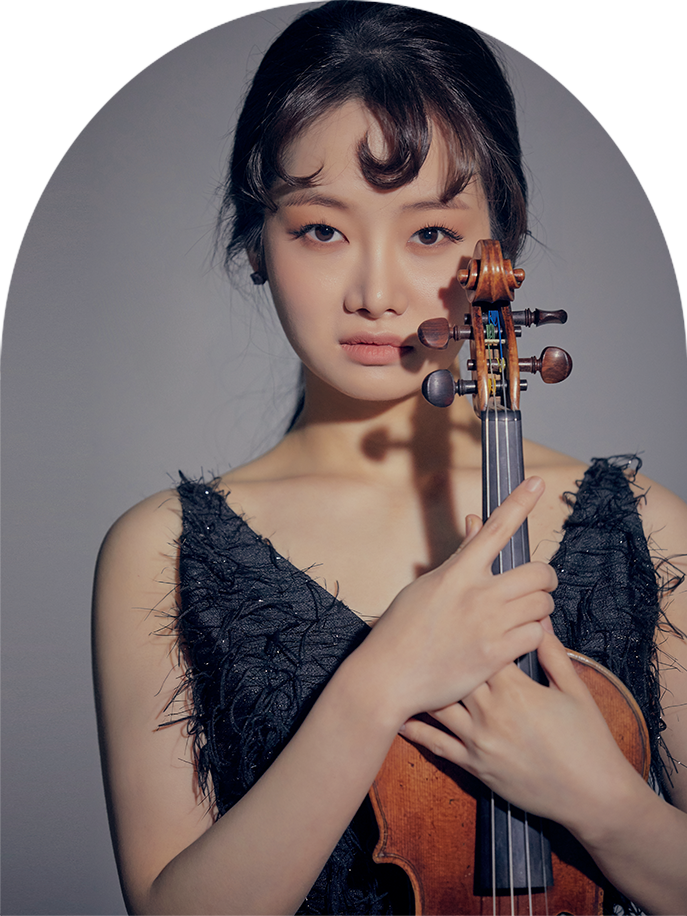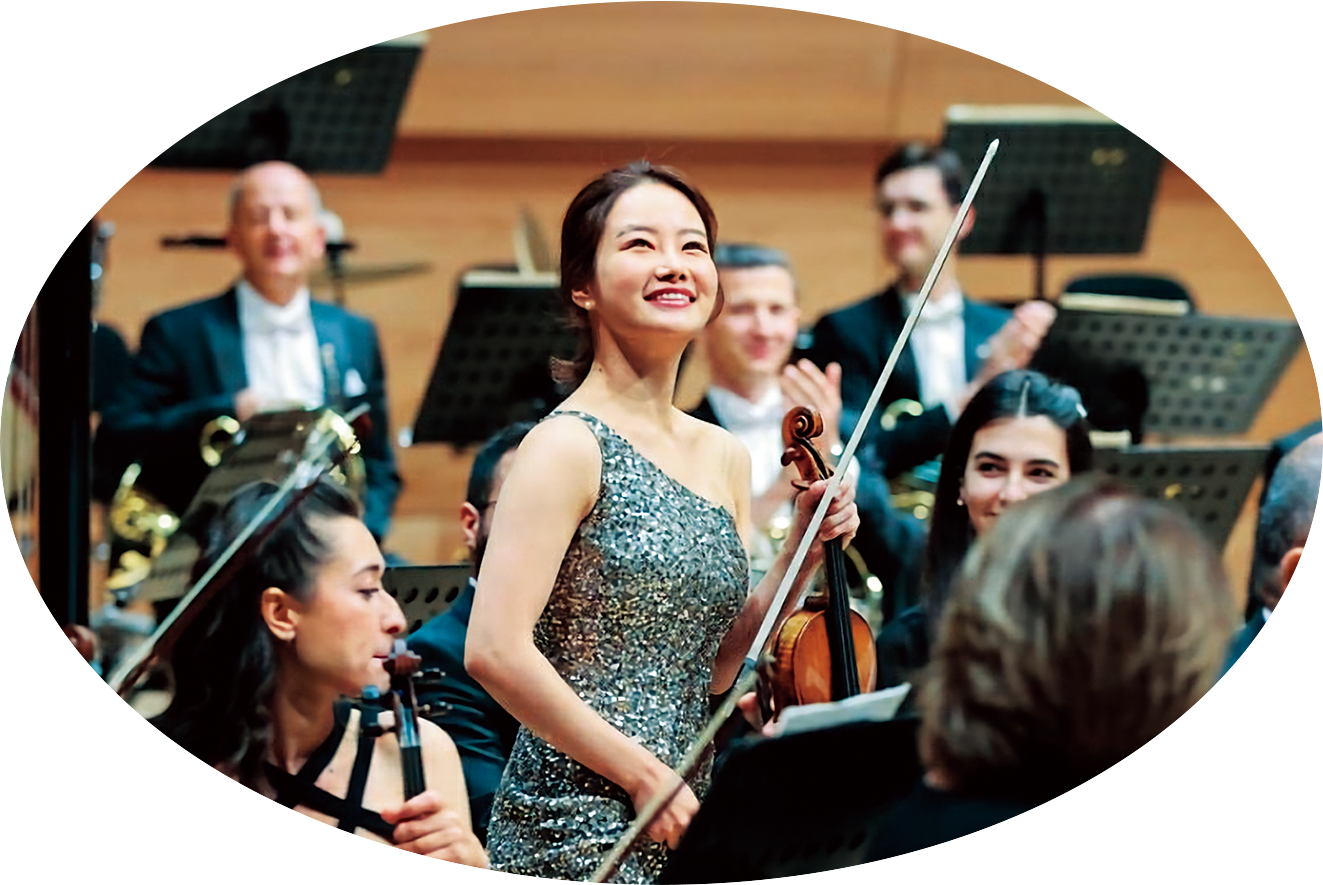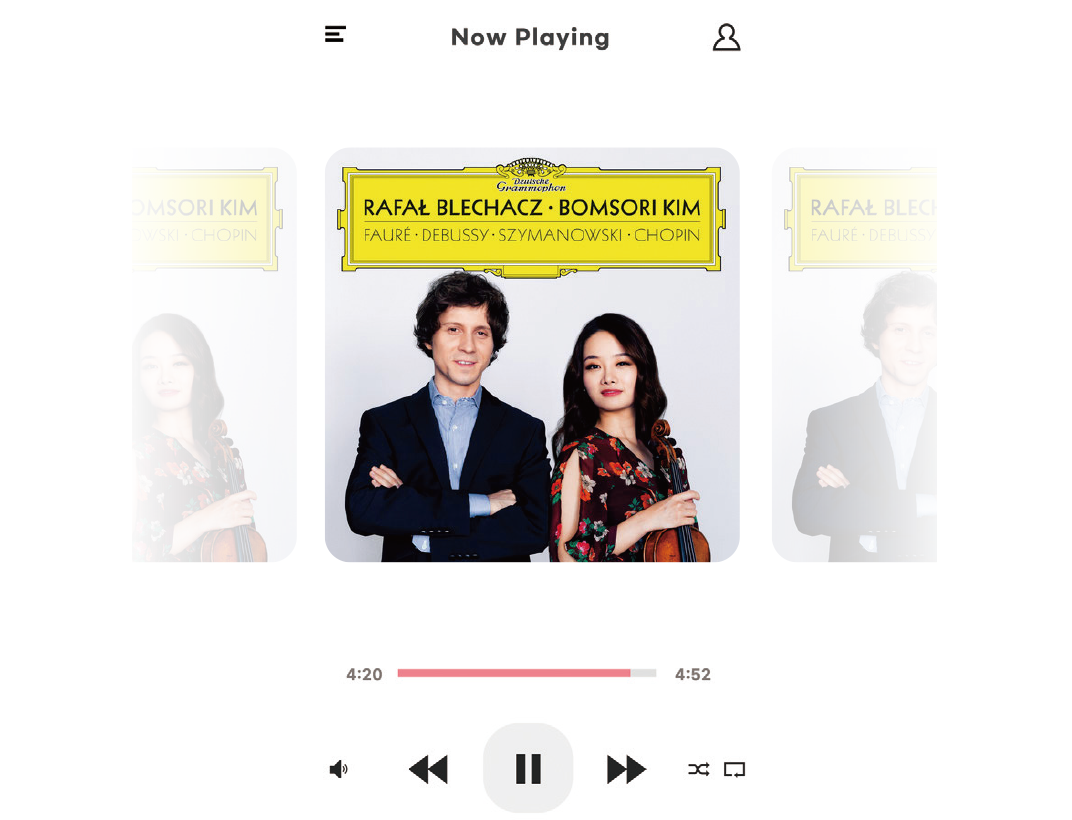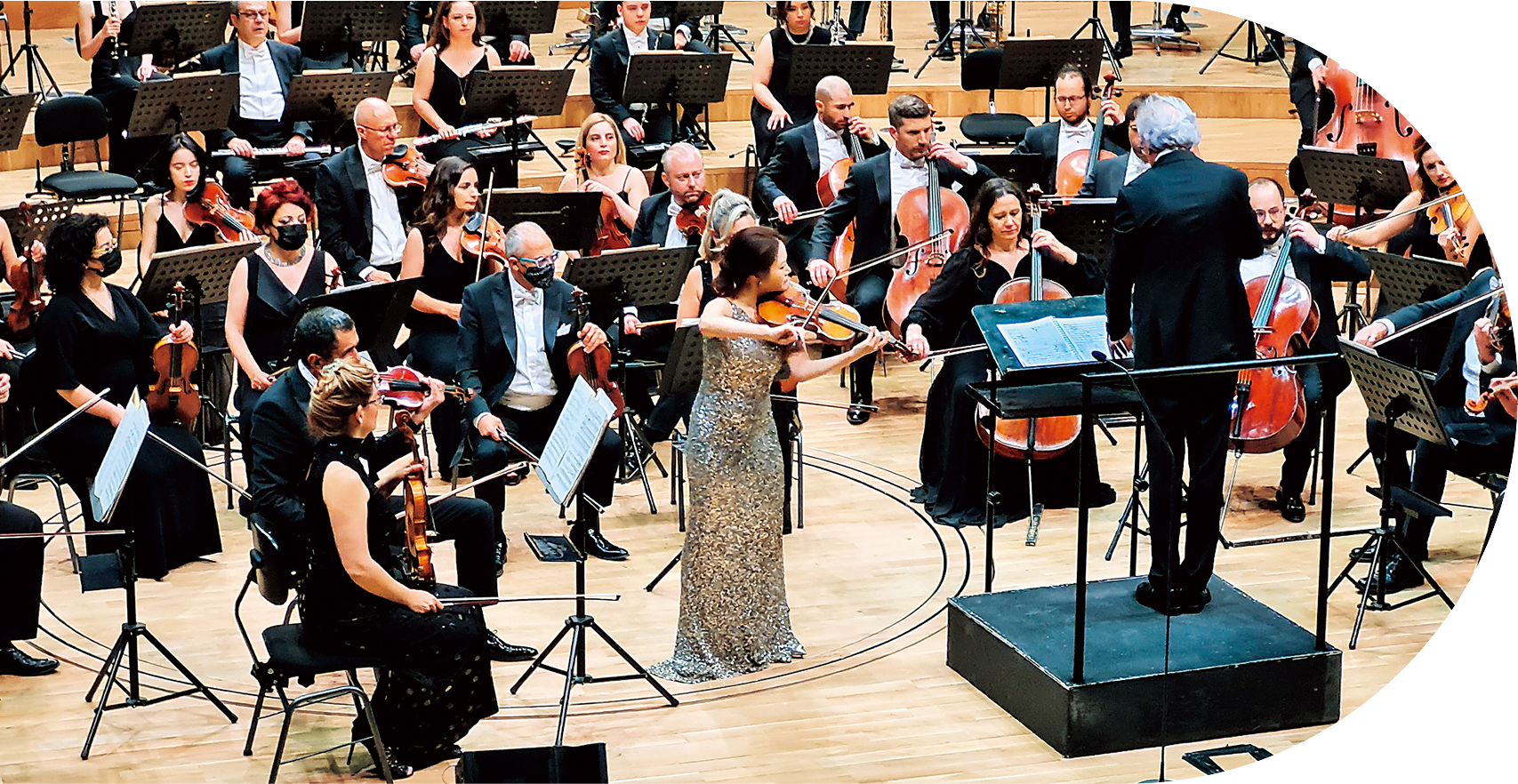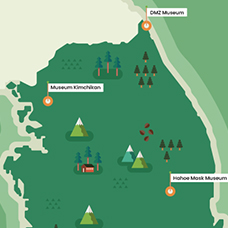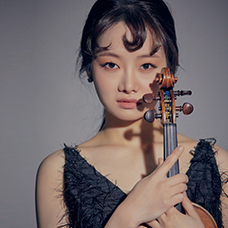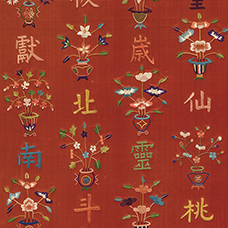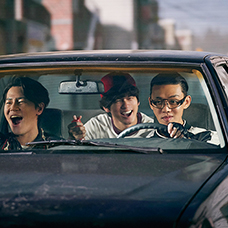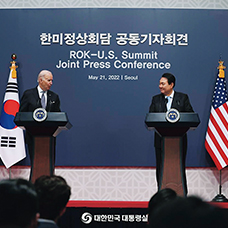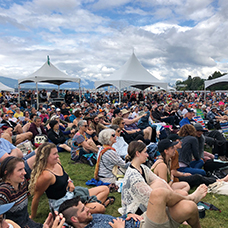Q ― Shall we start from the beginning of Bomsori Kim? You seemed like such a model student the first time I met you. I wondered how far a well-adjusted violinist who received education here in Korea would be able to develop.
Is that so? I’m not sure I would call myself a “model student.” It’s not my style to meticulously plan what to do in the long run. I wanted to change that, so I tried a lot of different things. I got a Franklin Planner and began making short and long-term goals.
Q ― It seems like you have the skill to understand others well.
I read a lot of books on psychology. There’s a particular psychological theory that I find interesting. It says, “If you want to be friends with someone, ask them for anything.” When you receive a favor from someone, you need to do something for them in return. The interesting thing is that, no matter the original request, the more time and effort you invest in someone, the more attached you become.
Q ― Do you feel like there’s a lot of psychological warfare between you and the violin?
Starting to play the violin was incredibly difficult for me because it’s quite hard to make sounds on the instrument. But I could feel that it was pushing me to keep going, so I devoted a lot of time to the violin. We’ve become more tied together as time goes on, and to this day, the violin remains the instrument I love the most.
Q ― Let’s talk about some of your first moments such as the 2010 Sendai International Music Competition in Japan, your first international competition.
That was the first time I ever stood on a stage that wasn’t in Korea. I was afraid of being evaluated for the music I had been working on. I played one of Mozart’s concertos for my first stage. I was so excited because it was my first time performing with an international band.
Q ― We can’t forget about the 2013 Munich ARD Music Competition. You were finally able to perform with a European orchestra. I was quite impressed with your performance of Brahms’ “Violin Concerto” with the Bavarian Radio Symphony Orchestra.
The biggest reason I participated in the ARD Music Competition was because I wanted to perform with the Bavarian Radio Symphony Orchestra for my final stage! I only have happy memories from that stage. I was excited even during rehearsal. I learned a lot during our short rehearsal time, such as how to match Brahms with a more German sound. The long prelude to Brahms’ “Violin Concerto” was so enchanting that it actually felt short. It was like a dream for me to take over and play that concerto.
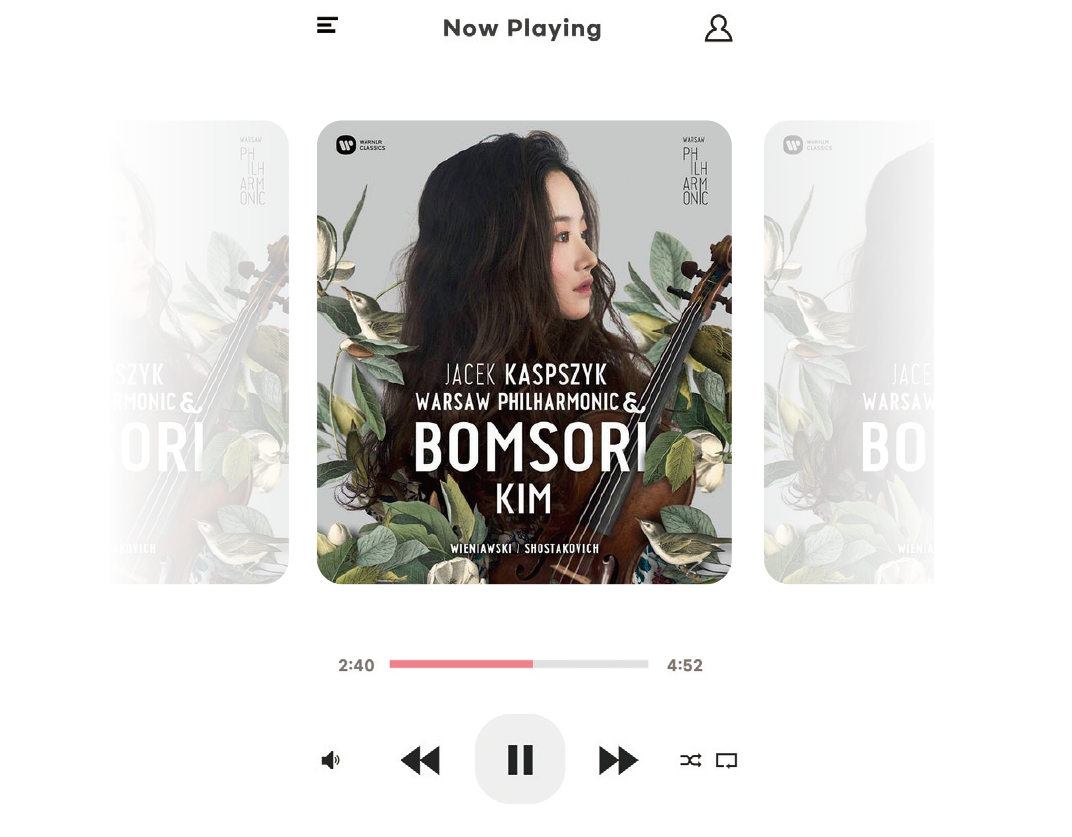
Q ― I’d also like to talk about your debut album released through Warner Classics in 2017. There’s a story behind the album. I remember when you participated in the 2016 International Henryk Wieniawski Violin Competition. Many people, from Gregoje Kotov (the broadcast critic for the competition) to Polish music officials and even some of the judges, questioned the fact that you only came in second. There was a lot of talk about it. As a result, you became a hot topic in daily newspapers, which helped introduce you to the general public. You ended up releasing an album before the person who placed first at the competition did.
That was the last competition I participated in. It made me see Poland as an incredible musical powerhouse. It was then that I learned that there is a large number of people in Poland who have an interest in music. I found them to be romantic. I actually have a similar attitude. Maybe that’s why my performance at the competition resonated with so many people.
Q ― There was a time when you were referred to as “a huntress of global competitions.” I think it was around 2015-2017. When I interviewed you then, I asked if there was any particular reason you decided to challenge yourself by competing at the global level. You said, “It gives me the opportunity to perform abroad.” It’s been quite some time since that interview, and it seems as though the seeds you sowed have yielded great results.
People often say, “The process is more important than the results.” Right? But I never really knew what the process was supposed to be, even when I was competing. A lot of people told me that the idea of competition is far from that of art itself. I actually agree with quite a few of the things people have said about that. However, I feel like I wouldn’t be the same professional musician I am today had it not been for the valuable stage experience I gained from competing. Above all, I have met a lot of precious people at competitions.
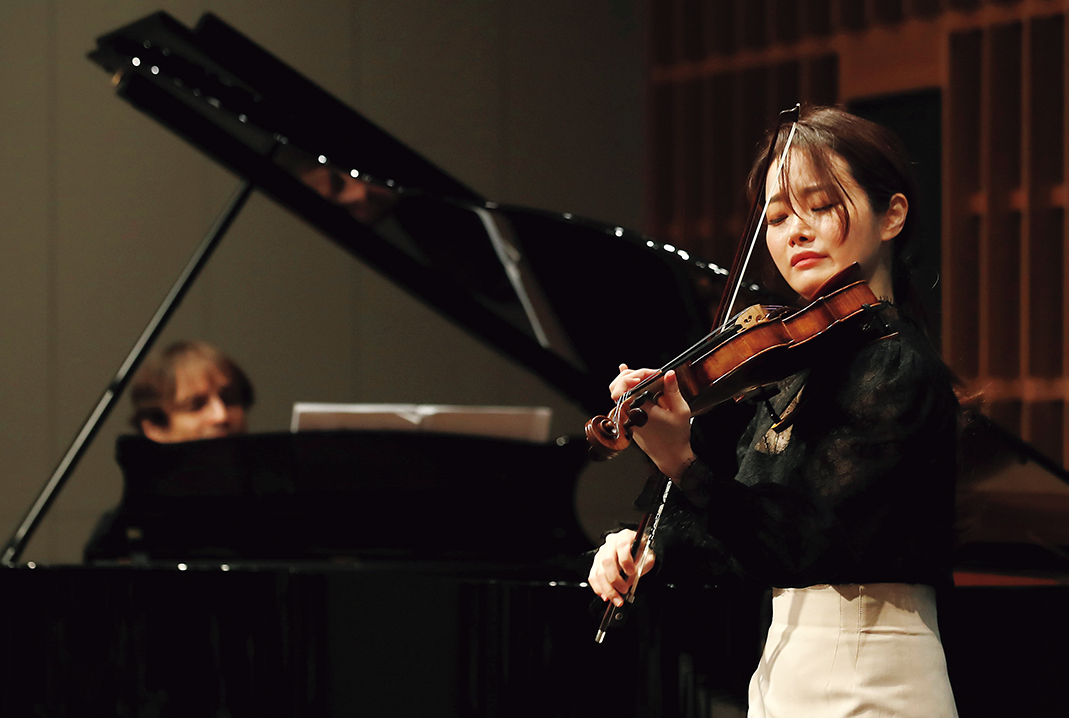
A press conference marks the release of Kim’s first solo album ‘Violin on Stage’ with Deutsche Grammophon. Kim demonstrated some of the songs from the album during the press conference.
Q ― It seems like you’ll be spending more time abroad than you will at home. Do you ever feel nervous when you encounter unfamiliar cities or people?
I like unfamiliar environments. Everything feels so new to me when I go to places like Istanbul, Turkey, or Spain, so I always wander around. I love Spanish food. I went on my first tour of Spain last year. The first city I went to was Pamplona, famous for the Running of the Bulls. In Spain, a lot of men run with the bulls to increase their courage. When I first read about the Running of the Bulls, I couldn’t think of risking my life for such a thing. Yet I understood everything when I went to the city. Isn’t that interesting?
Q ― You said that you built up your stamina by doing CrossFit or cycling when you lived in New York. What kind of exercise do you do these days?
I do tai chi when I can’t concentrate. I used to practice it with my father when I was young. Tai chi is a martial art as well as a form of gymnastics or yoga that trains the body. It’s ultimately a meditation-based practice. I think that hypogastric breathing has more of a positive effect when you’re able to put all of your energy into your performance.
Q ― You recently had good news. You signed an exclusive artist contract with Deutsche Grammophon. You have finally joined a lineup of top artists. What do you think of when you look at the list of gems at Deutsche Grammophon?
There are currently 40-50 artists from all fields under contract with Deutsche Grammophon. It still doesn’t feel real to me. I bow my head whenever I look at the list of artists. I often think to myself, “Something’s wrong!”
Q ― What did you do to prepare before you signed the exclusive contract with Deutsche Grammophon? I anticipated you would sign a contract with them after you released your duet album with Rafał Blechacz.
Oh, really? I didn’t expect it at all! It was surprising enough to have the chance to release an album with Rafał Blechacz through Deutsche Grammophon. The scope of my activities expanded after that album was released. In regard to what I did before I signed a contract with Deutsche Grammophon, I feel like I was able to open doors one by one by remaining patient and taking my time.


